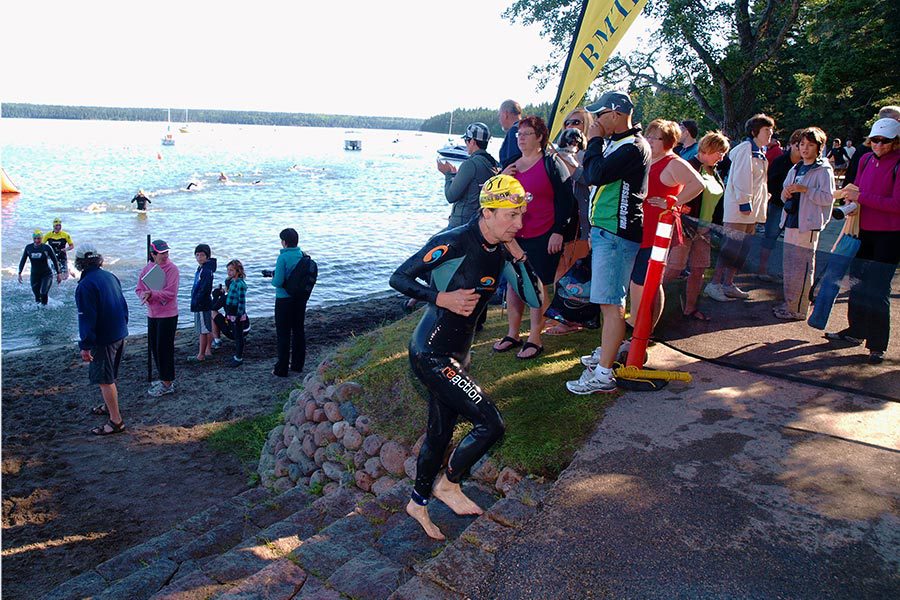Passing the torch in Riding Mountain
The biggest triathlon in the Prairie's is quite possible Canada's best kept tri secret
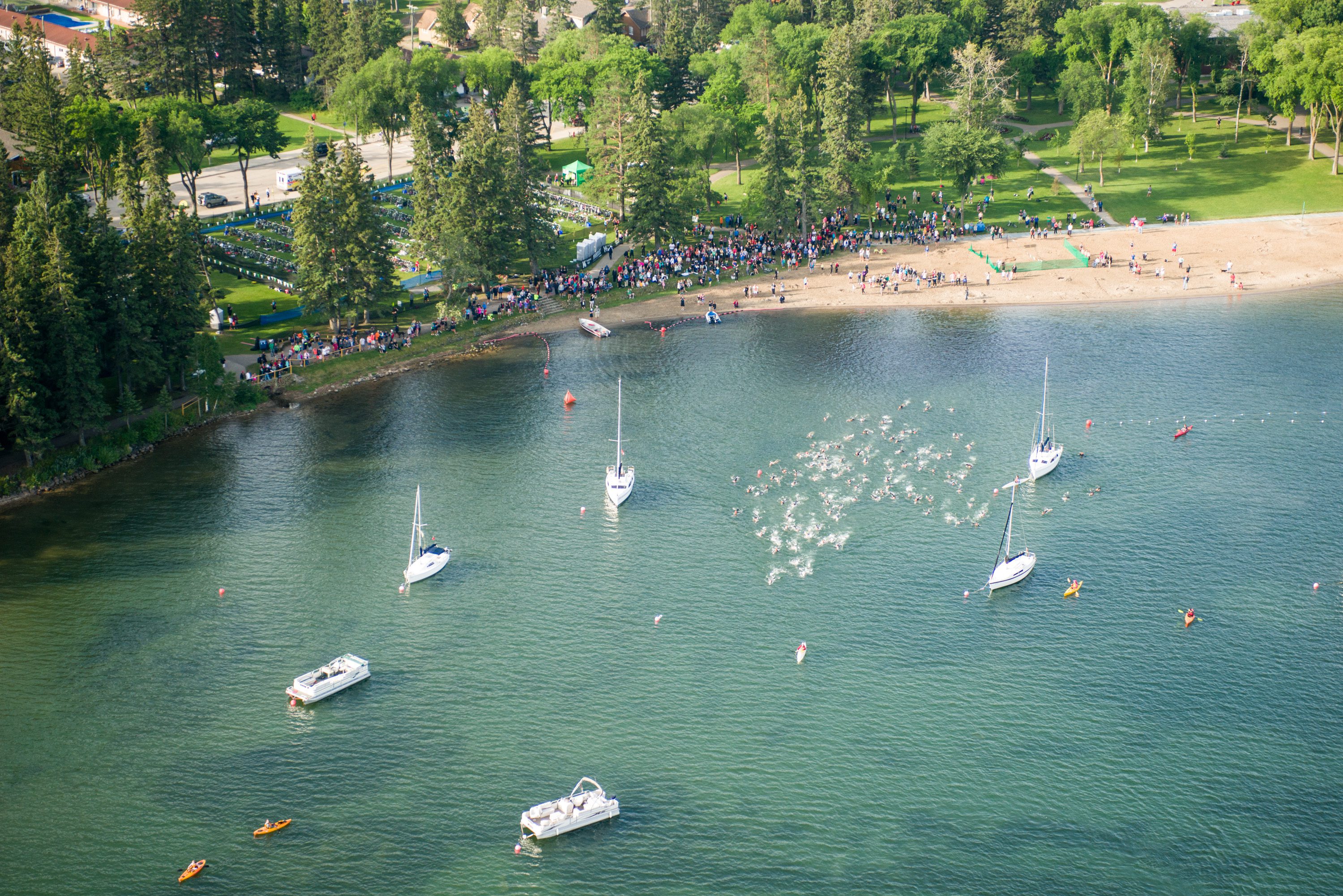
— by Loreen Pindera
The smooth, black asphalt of Manitoba Trunk Highway 10 stretches ahead of me like a satin ribbon cutting through the boreal forest. Pedalling hard, I pass one cyclist, gauge the distance between me and the next bike up the road and scan the craggy treeline for any sign of movement. The possibility of sighting a black bear doesn’t escape me.
This feels like flight: a wee bit of wind at my back, a curve in the road, just enough of a descent to make the ride feel effortless. I’ve just emerged from the cold, clean water of aptly named Clear Lake, but I’m warming up quickly in the morning sun.
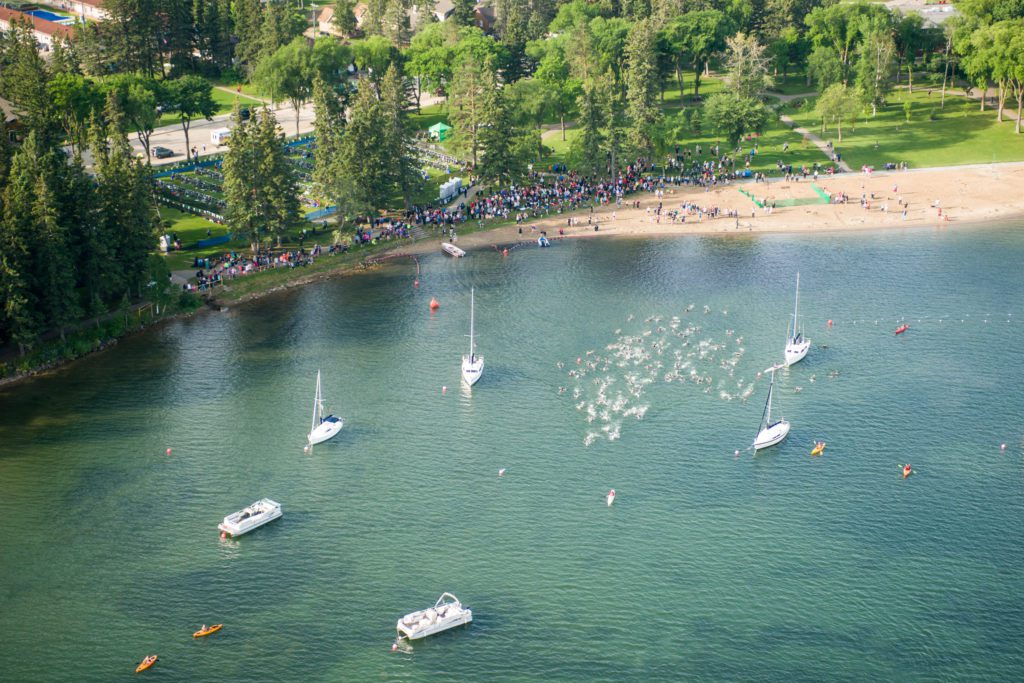
Memories of the Riding Mountain triathlon last August spurred me on all winter as I pounded out the kilometres on my indoor trainer.
With 500 participants, give or take a few, the Riding Mountain event is the biggest triathlon in Manitoba and Saskatchewan combined, and yet it may be prairie triathletes’ best-kept secret. Surrounded by pancake-flat farmland, the rugged geography of the park itself is a surprise, the way it rises up suddenly, a sharp escarpment to the east and a valley to the west that stretches out to become the Saskatchewan Plains.
“It’s such a beautiful setting,” says Ellis Crowston, who along with his wife Deb has organized the triathlon for the past dozen years. “In Wasagaming, where the swim takes place, you can see right across to the north shore of the lake.”
“On the bike course, you are cycling on a trail cut right through a magnificent national park forest. The scenery, those undulating hills — it’s not a flat out-and-back, there are some great climbs. You come off that, and the run is along the lakeshore… From beginning to end, it’s just this beautiful atmosphere.”

The Crowston’s live about an hour south of Wasagaming, in Brandon, but they have a summer cottage at Grey Owl, on the edge of the park. Ellis, 63, lifeguarded at Clear Lake as a teenager in the 1970s. In 1986, a runner and outdoor enthusiast named Laurie Penton organized a triathlon there — one of the first on the prairies.
“Laurie had a vision that Clear Lake was the perfect spot,” said Crowston. “So he put on a triathlon, and it’s been going ever since.” Crowston watched from the sidelines for the first few years, but in the early 90s, he bought a second-hand road bike and gave triathlon a try.
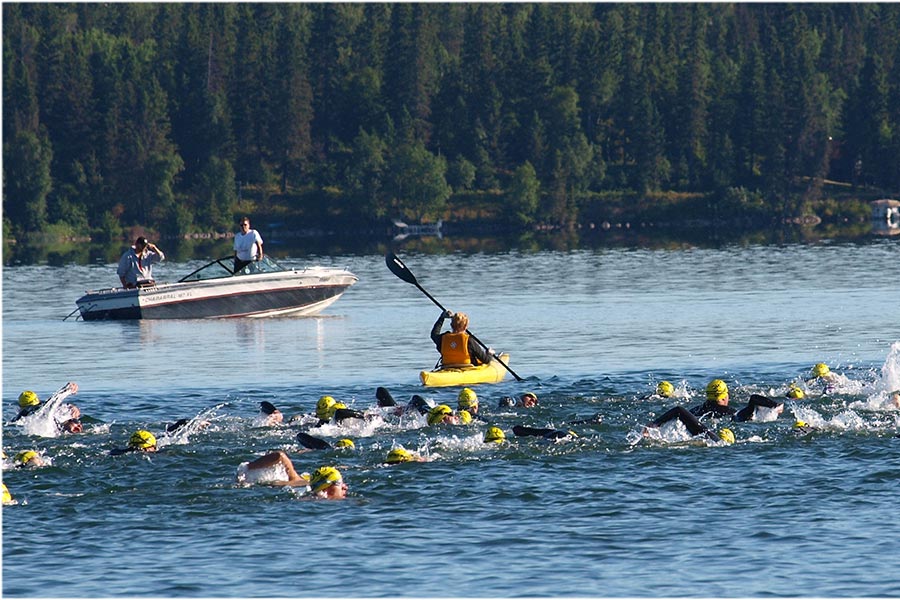
“Twenty years later, I’m still involved with this sport,” he says, laughing. “It can become an obsession.”
Penton eventually passed on the torch to a legendary Winnipeg track coach, Manitoba Sports Hall of Famer David Lyon, who organized the race for a decade. Then a dozen years ago, the Crowston’s, who’d been volunteers at the event for years, agreed to become race directors.
“We had a vision of what we wanted to do with that race,” Crowston recalls. “We wanted to create a feel and a look of one of those big-name races that you would have to travel out to BC or southern Ontario to go to. But having it here, the average local weekend warriors could come and get that feeling.”
The Crowston’s grew the race from 200 participants to more than double that, topping 500 three years in a row. In 2016, the race took a hiatus, when the park all but shut down Highway 10 for major roadwork.
It was about time. The road had been crumbling for years, and triathletes on stiff carbon frames joked about the beating they took on the bike course — water bottles going flying, axles breaking, hands still vibrating hours after the race ended. The road’s resurfacing was welcome, but still Ellis Crowston wondered if triathletes would come back when the race did.
He needn’t have worried.
“It was a huge hit,” he said. “That brand-new, steam-paved road — to get a cycling course as nice as that one is now, you would have to go to the foothills of Alberta or east, to Muskoka. It’s a gorgeous ride.”
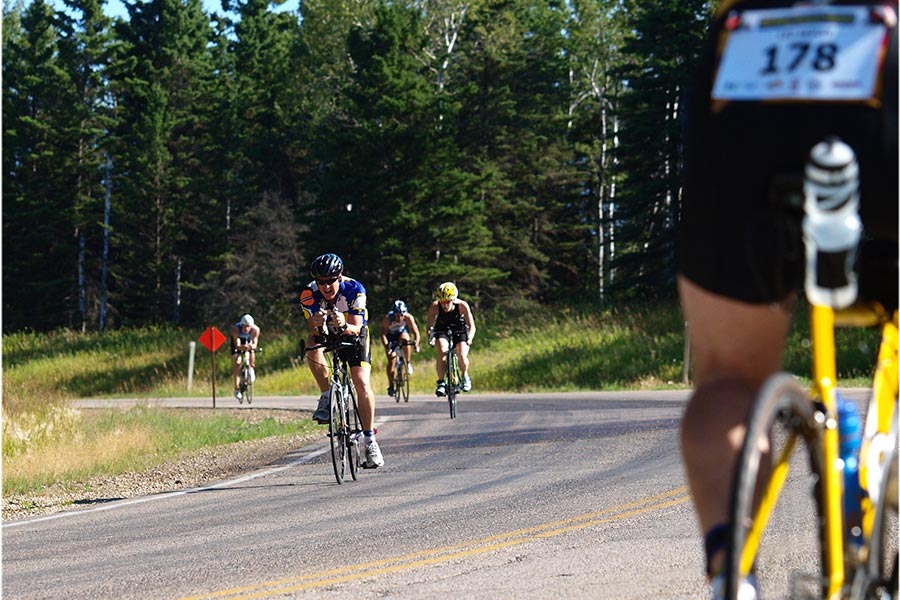
The new and improved course, the balmy weather, the enthusiastic volunteers: last August, it all added up to a near-perfect race. What the Crowston’s weren’t telling anyone is that they already knew it would be their last as race directors. Ellis recently retired, and the couple is ready to move on.
Enter Dave Lipchen. The 41-year-old founder of Windburn Multi-sport Academy was the head coach of the Manitoba youth triathlon team for five years. As the team’s chief recruiter, he persuaded a talented young athlete named Tyler Mislawchuk to hang up his hockey skates and give triathlon a serious go. (The rest is history: Mislawchuk came 15th in the Rio Olympics in 2016.)
Back in 1992, Lipchen discovered Kids of Steel and got hooked on the sport, at 15. He raced as an age-grouper while getting a degree in exercise science at the University of Manitoba, competing in nine ITU world championships through his 20s and early 30s. Until last November, he was the development coach for Manitoba Cycling, and he already has vast experience organizing races, from the Lac du Bonnet triathlon in the mid-2000s to the annual 10K Canada Day road race in East St. Paul.
“More than anyone else I know, Dave has put his life into this sport,” says Crowston. “It is his vocation: to be involved, to build the sport, to build athletes. The more we talked, the more we thought, if anyone deserved to take on this race, it is Dave.”
Last October, the Crowston’s drove to Winnipeg to meet Lipchen for a lunch meeting that turned into a marathon four-hour heart-to-heart, discussing every aspect of the 31-year-old Riding Mountain event. Ellis and Deb drove home much later than expected, confident the 2018 race is in good hands.
“It is very exciting to take on a race of this quality and this size and continue to build on it,” says Lipchen. His goal for next summer is to simply put on the same seamless event that the Crowston’s have created with their stable of 100-plus volunteers and the enthusiastic support of the national park staff.
After that, the sky’s the limit.
A manageable drive from Saskatoon, Regina and Winnipeg, Lipchen thinks the Riding Mountain race could become an official prairie championship race, possibly an ITU world championship qualifier.
“I’d like to see us make it a kind of triathlon edition of the Banjo Bowl,” he says, referring to the annual rematch between the CFL’s Winnipeg Blue Bombers and the Regina Roughriders. “We already get a huge contingent from both provinces.”
A 70.3-km race is also on the horizon.
“The word is out about those 65 kilometres of brand-new paved road,” Lipchen says. “There is a lot of potential for what this race can become. There is no other race on the prairies that has that kind of venue, conditions so ideal for a longer distance race.”
Mark it on your calendar: August 18, 2018.
